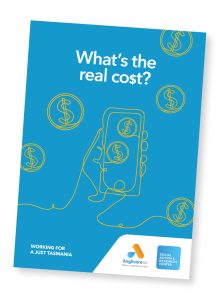Gambling Related Blogs
View All
Are you supporting someone with a gambling problem?
Anglicare’s Gamblers Help Family Resource Booklet will help you support the person you care about while also taking care of yourself. Read full story
Do you know how your gambling affects others?
Gambling can have a wide ripple effect. It’s estimated that for every person experiencing gambling harm another seven other people are affected, too. Read full story












